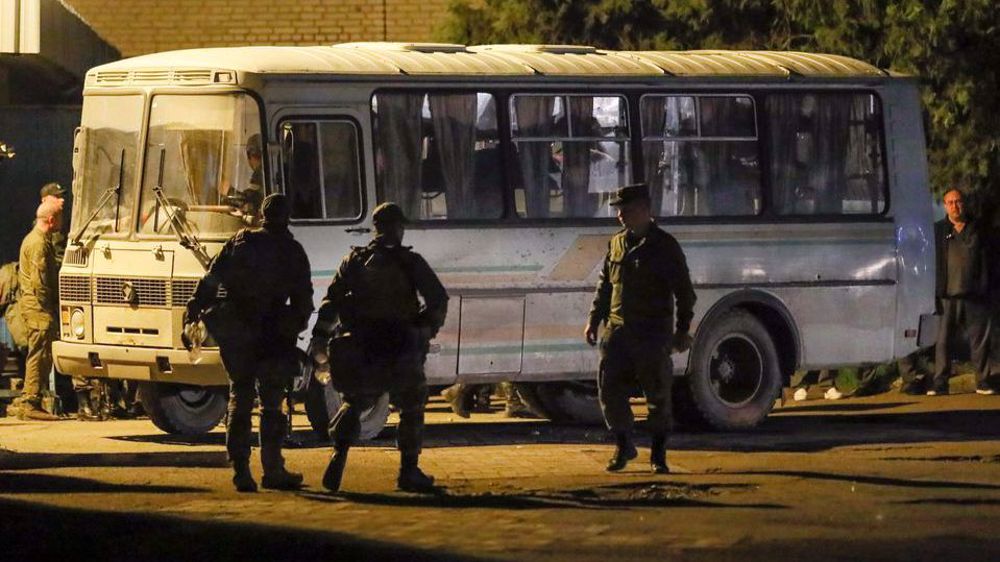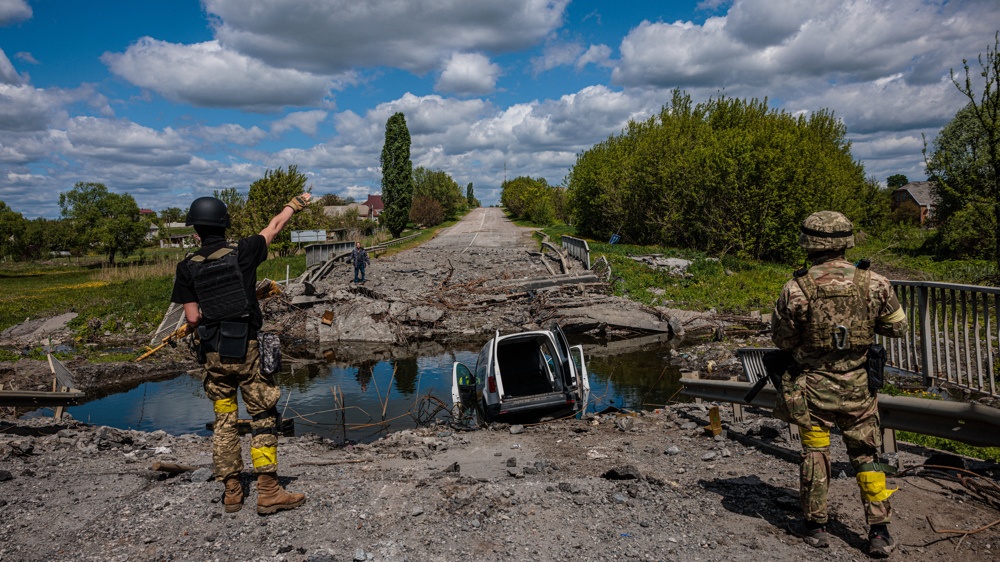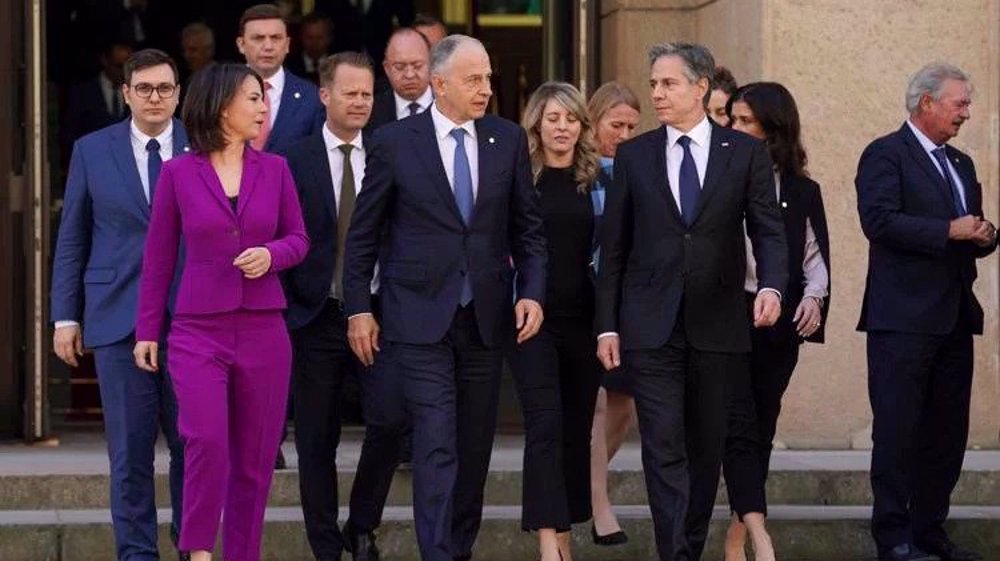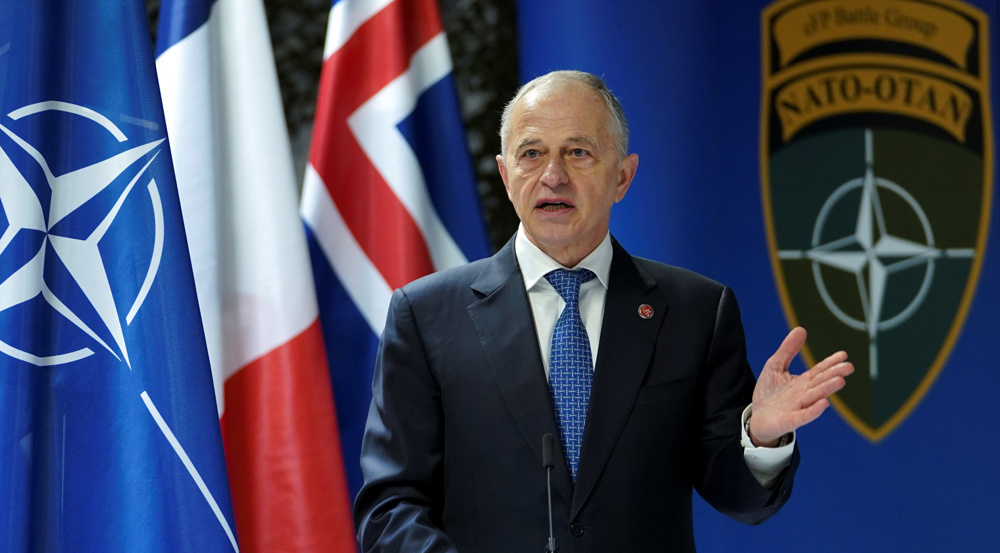Press TV in Mariupol: The run-up to the city’s fall to Russia
Press TV’s correspondent reaches Mariupol, recounting the run-up to the southeastern Ukrainian city’s fall to the Russian military.
The city was captured by the Russian forces, who have been staging a military operation in Ukraine, on Tuesday. The news of Mariupol’s surrender emerged amid efforts by the Ukrainian government to evacuate hundreds of troops, who have been holed up in Azovstal, the city’s sprawling steelworks.
Reporting from the plant’s periphery, Press TV’s Correspondent Johnny Miller said the remaining soldiers “particularly” belonged to the far-right Azov regiment, a neo-Nazi battalion that has expanded to become part of Ukraine’s armed forces, a street militia, and a political party.
Miller described the members of the Azov battalion, as “ideologically driven militants,” adding, “We’ll see in the coming days or weeks whether they will surrender too.”
Russian President Vladimir Putin announced the “special military operation” on February 24 in order to “demilitarize” the Donetsk and Lugansk regions in eastern Ukraine. In 2014, the two regions declared themselves new republics, refusing to recognize Ukraine’s Western-backed government.
Ordering the operation, Putin said the mission was aimed at “defending people who for eight years were suffering persecution and genocide by the Kiev regime.”
Another goal sought by the operation was to “de-Nazify” the ex-Soviet republic, the Russian head of state also said back then, apparently referring to the far-right militants and the influence they wielded across Ukraine’s political and military sectors.
Earlier on Tuesday, the General Staff of Ukraine's Armed Forces said in a statement that 264 of the forces, including 53 wounded ones, had left Azovstal, and efforts were underway to evacuate the rest of them.
The reporter, meanwhile, said Mariupol was partially grinding back into action—as the fate of the city began to become clearer.
“I’ve been around the west of Mariupol today. It’s coming back to life. The west of Mariupol feels like a peaceful city, although, most of it, or at least half of it, is in ruins. There’s a market that has opened up. It’s quite busy. Humanitarian aid is being given out. Even some buses are running,” he noted.
Yemeni FM: Israel’s sponsors accountable for ongoing aggression on Sana’a
Eight Palestinians killed as Israel attacks Gaza school, hospitals
VIDEO | Rome, Milan host new protests in solidarity with Palestinians
Dec. 21: ‘Axis of Resistance’ operations against Israeli occupation
Spain jurists demand ties with Israel ties be cut
VIDEO | Press TV's news headlines
VIDEO | Iran honors top Science Olympiad medalists
VIDEO | Austrians arrested at Gaza protest in Vienna













 This makes it easy to access the Press TV website
This makes it easy to access the Press TV website